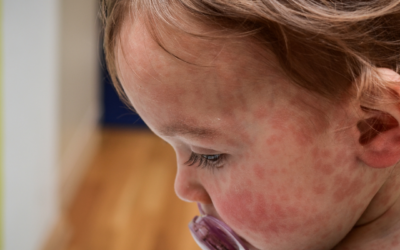Understanding the Serious Adverse Events (SAEs) of COVID-19 mRNA Vaccines: An In-Depth Analysis
In December 2019, the world was introduced to a novel virus, SARS-CoV-2, which quickly evolved into the global pandemic we know as COVID-19. With the World Health Organization (WHO) declaring the pandemic on March 11, 2020, the world anxiously awaited solutions to curb the spread of the virus. Vaccination emerged as the most effective tool against COVID-19, and by December 2020, two mRNA vaccines—the Pfizer–BioNTech (BNT162b2) and Moderna (mRNA-1273)—received emergency use authorization from the U.S. Food and Drug Administration (FDA).
Although these vaccines have been widely distributed, with around 80% of the U.S. population having received at least one dose, concerns about adverse events (AEs) persist. The urgency in developing and approving these vaccines meant that long-term follow-up data was limited, and as the vaccines continue to be administered, ongoing studies are essential to understanding any potentially serious side effects.
The Purpose of This Study
This study aimed to evaluate serious adverse events following immunization (AEFIs) after the administration of the Pfizer–BioNTech and Moderna vaccines. Using data mining techniques, the study identified serious AEs not originally noted in the vaccine authorization and developed prediction models to prevent future occurrences.
Demographic Characteristics and Incidence of AEFIs
The study analyzed 555,033 individual case safety reports (ICSRs) from adults who received either the Pfizer–BioNTech or Moderna vaccines. The data revealed that the Pfizer–BioNTech vaccine had a 10.61% incidence of serious ICSRs, while the Moderna vaccine had an 8.05% incidence.
Several demographic factors were associated with a higher incidence of serious AEFIs. Females reported a higher percentage of serious ICSRs for both vaccines, accounting for 54.4% of reports for the Pfizer–BioNTech vaccine and 52.2% for the Moderna vaccine. Additionally, individuals aged 65 and older had significantly higher rates of serious AEs compared to younger recipients.
Moreover, serious AEFIs were more likely when the time to onset exceeded seven days after vaccination, and these events were often correlated with frequent visits to emergency rooms or clinics.
The Most Common Serious AEFIs
Out of 271,144 reported serious AEFIs, the most frequent conditions included general disorders, such as fatigue and fever, and site-specific reactions. Additionally, the study identified nervous system disorders—primarily headaches, dizziness, and cerebrovascular accidents—as prevalent adverse events. Pulmonary embolisms (PE), a more severe condition, were also noted, albeit less frequently.
Signal Detection and Disproportionality Analysis
The study employed a disproportionality analysis to detect signals for serious AEFIs, revealing 201 signals for the Pfizer–BioNTech vaccine and 110 for the Moderna vaccine. Signals are indicators that specific adverse events may be associated with a vaccine. Of particular concern were the ‘cardiac disorders,’ ‘infections and infestations,’ and ‘renal and urinary disorders’ categories, which saw a more than 200% increase in the rate of serious AEFIs when compared to non-serious events.
The analysis showed that recipients of the Pfizer–BioNTech and Moderna vaccines were more than three times as likely to experience cardiac disorders than those who received other vaccines. The risk of infections, such as urinary tract infections, and renal disorders was also significantly higher.
Implications for Future Vaccination Campaigns
As we look toward the future, the knowledge gathered from studies like this one is invaluable. It highlights the importance of monitoring serious AEFIs and provides insights into how we can predict and prevent adverse events in future vaccination efforts. The continued surveillance of vaccine safety, especially as SARS-CoV-2 is expected to become an endemic virus, is crucial in maintaining public trust in vaccines and ensuring the overall health of the population.
Understanding the demographic and clinical factors associated with serious AEFIs will help refine vaccine strategies, ensuring the safe administration of COVID-19 vaccines, particularly for vulnerable populations. Ultimately, this will contribute to the ongoing fight against COVID-19 while minimizing risks to individual health.
References
- World Health Organization (WHO) COVID-19 pandemic declaration, March 2020
- U.S. Food and Drug Administration (FDA) authorization for COVID-19 mRNA vaccines, December 2020
- U.S. Centers for Disease Control and Prevention (CDC) COVID-19 infection and vaccination data, April 2022
- Studies on adverse events following immunization (AEFIs)
- Disproportionality analysis of serious AEFIs in COVID-19 vaccines



0 Comments